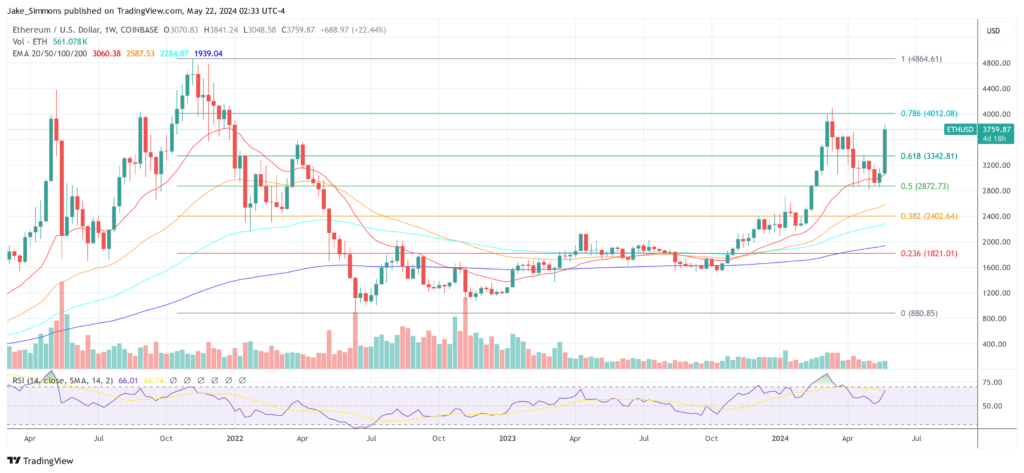Spot Ethereum ETFs getting approved by the SEC will make it hard for people to get Ether, says Joseph Lubin, co-founder of Ethereum and CEO of Consensys. This could be Ethereum’s “watershed” moment.
In a one-on-one talk with DL News, Lubin said that allowing spot ETH ETFs would create a lot of institutional demand because many institutions have already started investing in crypto through spot Bitcoin ETFs. Lubin said, “There’s going to be a lot of natural, pent-up pressure to buy Ether” through these ETFs. But he did say that the way the supply works is very different in Ethereum and Bitcoin, which is an important difference.
Over 27% of all Ether is held across different ETH network protocols, making it less useful for making ETFs. Lubin said these funds can’t be quickly traded on the market like Bitcoin because they are locked in network safety and operations contracts. “Much of the Ether is put to work in the core protocol, DeFi systems, or in DAOs,” said he. In other words, ETF providers can’t buy and give out as much Ether.
Ethereum’s Burning Mechanism: Impact on Supply Dynamics
When Ethereum’s EIP 1559 came out in August 2021, it added a burning system that took some Ether out of circulation for transaction fees. This process slowly removes things from the market to stop supply growth. Lubin said that this burning process would bring down the supply even more as network activity grows, possibly because ETFs are attracting more institutional interest. This would make the supply problem worse if it happened.
The market could change a lot if an ETH spot ETF is approved. A crypto expert, Miles Deutscher, said Ethereum’s price could increase like Bitcoin’s after the ETF was passed. He believed it would get to $6,446 by July 23.
On the other hand, analysts have different ideas. Vetle Lunde from K33 Research talked about how tough it would be to make something like Bitcoin work again. For example, he said that before spot ETF approval, futures-based Ethereum ETFs weren’t used as much as Bitcoin ETFs. Crypto expert Vijay Boyapati worries that ETFs are structured differently, especially because they can’t include staking. This makes it harder for ETFs to show how the value of ETH has grown.
Alex Thorn, Head of Research at Galaxy, agreed with what was said and pointed out that not staking Ethereum ETFs hurts earnings. Thorn thought that methods that don’t stake might not work as well as those that do.
Because experts have different ideas, it’s hard to say what would happen to the price of Ethereum and how the market works if an Ethereum ETF is launched.








